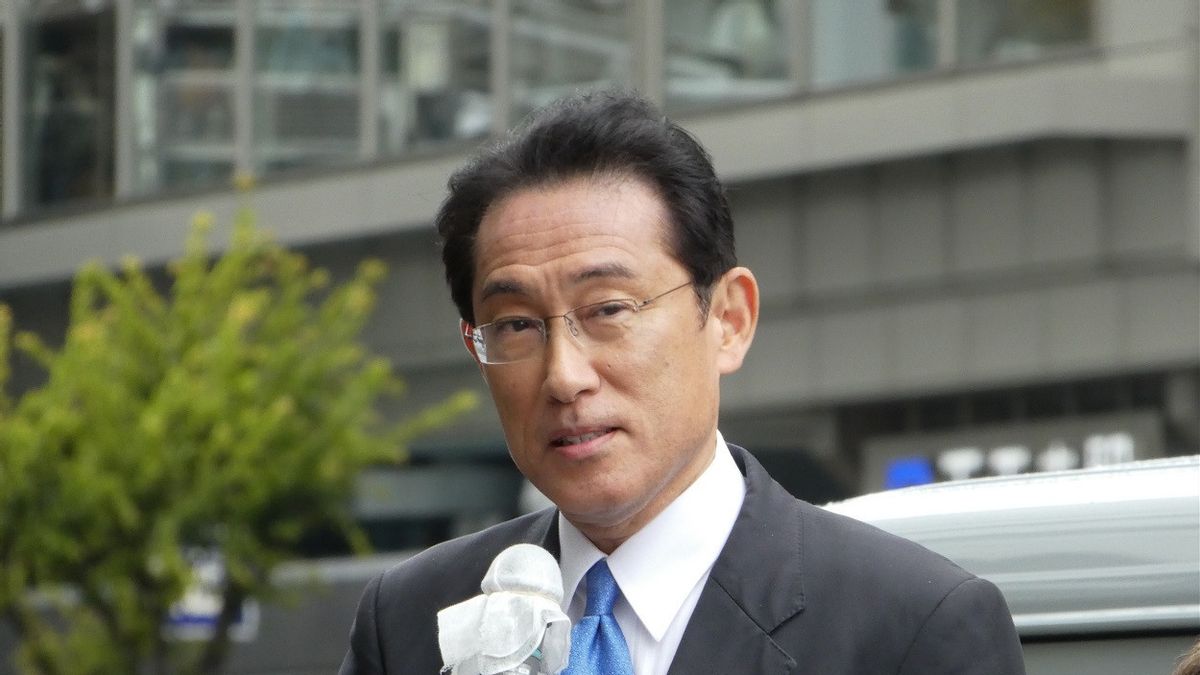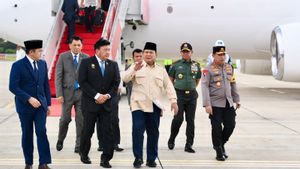JAKARTA - Former Japanese Foreign Minister Fumio Kishida, won the election of the leader of Japan's ruling Liberal Democratic Party (LDP), ushering him into the position of next prime minister.
In Wednesday's election local time, Kishida won the second round of the election against Vaccine Minister Taro Kono with 257 votes to 170 votes.
Although he only received support from moderate circles, however, Kishida was supported by several party elites. It is not clear whether Kishida's soft image could cause problems for the LDP in the general election scheduled for November 28. Nevertheless, he focuses on populist issues.
"We will strive to achieve economic growth and distribution of wealth", he said, adding there was no way to achieve growth without distributing wealth, quoting Reuters September 29
Kishida, who will replace Prime Minister Yoshihide Suga who is not running for re-election as party leader after just one year in office, will almost certainly become prime minister in Monday's parliamentary session, given the LDP's majority in the lower house.
He is expected to form a new cabinet and reshuffle the LDP executive in early October. The media, citing LDP executives, reported the lower house is likely to be dissolved in mid-October with elections on November 7 or November 14.
"Victory for the establishment. Kishida means stability, because it doesn't shake the boat and most importantly, does what the elite technocrats tell him to do", said Jesper Koll, expert director at Monex Group.

Kono, a fluent English speaker with a large following on Twitter who is known to be outspoken, is not considered the top choice of some party elites. Meanwhile, two female Japanese PM candidates, Sanae Takaichi and Seiko Noda came out after the first round.
Kishida's win is unlikely to trigger a major policy change, as Japan seeks to tackle an assertive China and revive a pandemic-ravaged economy.
Kishida shared a broad consensus on the need to bolster Japan's defenses, strengthen security ties with the United States and other partners including Japan's QUAD group, the United States, Australia, and India while maintaining vital economic ties with China.
SEE ALSO:
In particular, Kishida wants to strengthen Japan's coast guard and support a resolution condemning China's treatment of the Uighur ethnic minority. He wants to appoint an aide to the prime minister to monitor the human rights situation.
Not only that, Kishida proposed a spending package of more than 30 trillion yen, adding that Japan likely won't raise the sales tax rate from 10 percent for about a decade.
He also stressed the need to distribute more wealth among households, in contrast to former Prime Minister Shinzo Abe's focus on former Prime Minister Shinzo Abe's 'Abenomics' policy of increasing corporate profits in the hope that benefits flow to wage earners.
The English, Chinese, Japanese, Arabic, and French versions are automatically generated by the AI. So there may still be inaccuracies in translating, please always see Indonesian as our main language. (system supported by DigitalSiber.id)


















